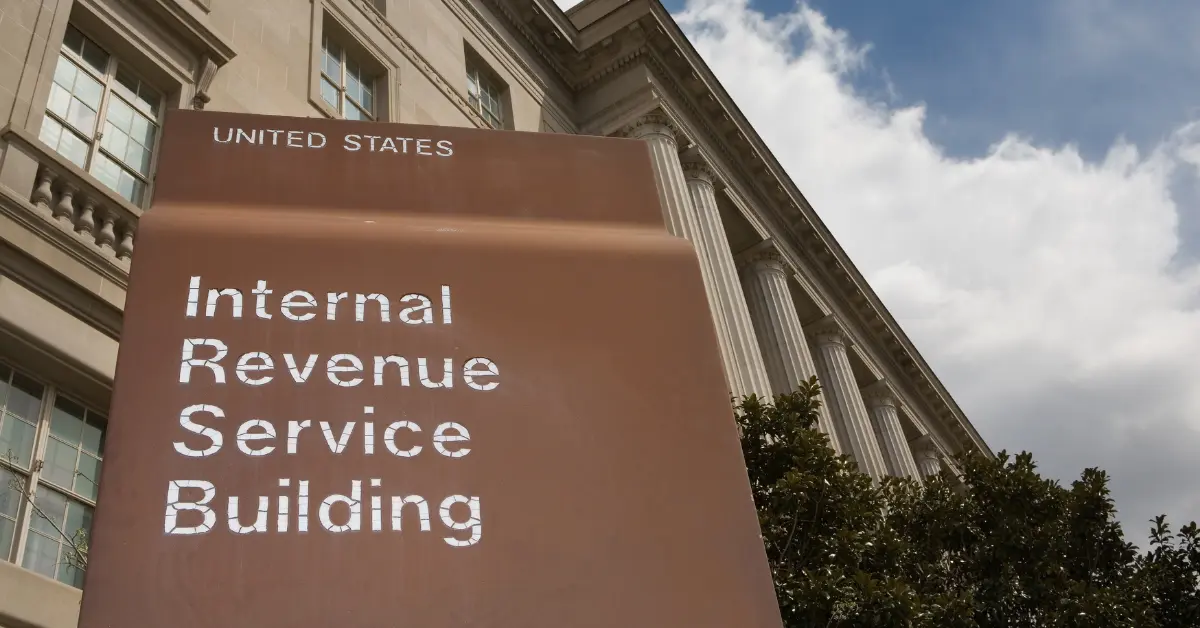Have you ever stared at your bank account, watching numbers dance like fireflies on a summer night? Now imagine those accounts scattered across different countries. This is where FBAR reporting comes into play.
The task can feel as intimidating as facing a bull in a Spanish arena. But what if it could be easier?
I once shared this fear until I navigated the labyrinth of foreign financial disclosures. Suddenly, the menacing bull transformed into an approachable calf.
In this guide, we’ll demystify FBARs – from deciphering whether your PayPal or Apple Pay counts as foreign accounts to handling virtual wallets with multiple currencies.
We’re about to embark on an enlightening journey through unfamiliar terrain but remember; every great explorer started without knowing their path fully yet still found their destination.
Understanding FBAR Reporting
If you’re a U.S. person with foreign financial accounts, it’s crucial to understand the ins and outs of FBAR reporting. Not only can proper filing keep you on the right side of Uncle Sam, but it also helps prevent hefty penalties that could come your way if non-compliance is detected.
The Importance of Reporting Foreign Financial Accounts
FBAR, or Report of Foreign Bank and Financial Accounts (FinCEN Form 114), needs to be filed when an aggregate balance exceeds $10,000 at any point during a calendar year in all foreign accounts held by a US person.
This rule isn’t limited to just bank accounts—it extends to other types such as securities and mutual funds too. So even if you’ve got less than ten grand each in your Swiss bank account and French life insurance policy—but their combined balance goes over this limit—you’ll need to report them both using FinCEN Form 114.
How to Determine Your Filing Requirement
Determining whether you need to file an FBAR might feel like trying to solve Rubik’s cube blindfolded. But don’t worry—we are here to help.
You have two things primarily determining your filing requirement: account type and total value across all foreign financial assets throughout the year—not just on December 31st. Even temporary control over someone else’s money through signature authority brings that amount into consideration.
Note: You aren’t required under IRS rules—like those related tax return—to report employer-owned accounts where only job-related transactions occur.
A word about Penalties…
Did you forget to file an FBAR or, worse, willfully hide foreign accounts? Brace yourself for a storm. Penalties can be hefty, varying from $10K for unintentional mistakes to as much as the larger of either 50% of the account balance at the time of violation or $100K if it was done deliberately.
Hey, some good news though. If you genuinely goofed up (non-willful), the IRS might just let it slide without penalties—though it’s not guaranteed.
Key Takeaway:
For U.S. individuals with foreign accounts, grasping FBAR reporting is crucial to dodge fines and keep on Uncle Sam’s right side. Keep in mind, if the total sum of your foreign assets goes over $10,000 at any time during the year—not just December 31st—it’s necessary to report it using FinCEN Form 114. And remember—even temporary
FBAR Reporting for PayPal
If you’re using a PayPal account to handle your international transactions, it’s essential to understand the implications of FBAR reporting. Just like other foreign financial accounts, if the combined balance exceeds $10,000 at any point during the calendar year, U.S. persons are required to file an FBAR.
Common Issues with PayPal Reporting
A frequent misunderstanding is that Paypal, as a US-based firm, wouldn’t be classified as ‘foreign’. But remember this: if your PayPal account has ties with any foreign bank or deals in foreign currency exchanges and meets certain thresholds as per FinCEN’s BSA e-filing system, then yes – you must report it on your FBAR.
An important aspect of a filing includes correctly calculating the highest aggregate balance of all your foreign financial accounts throughout the calendar year. Many people make mistakes while converting their balances into USD due to fluctuating exchange rates; they fail to consider peak values during currency conversion which can lead them astray from accurate reporting.
You need not lose sleep over these complexities though. The right knowledge and careful record-keeping will let you tackle this head-on without breaking a sweat.
Besides being aware of these issues related directly to Paypal reporting for FBARS purposes, there are broader concerns too about how digital payment platforms relate within the global tax laws landscape – such as FATCA compliance or Income Tax Returns considerations depending upon residency status or citizenship conditions among other aspects worth exploring more deeply.
Determining If Your Account Is Foreign
To determine whether your PayPal account falls under the “foreign” category, look at where funds are held rather than where transactions occur. If you have linked your PayPal account to a foreign bank, it’s considered a foreign financial account for FBAR purposes.
Remember, the IRS is more concerned about where your cash sits, not who controls the platform. So if PayPal, even as a U.S. company, holds funds overseas, it’s considered ‘foreign’ and requires reporting.
Key Takeaway:
Don’t limit FBAR reporting to traditional bank accounts. Say you’re making international transactions through PayPal, and your balance ticks over $10,000 at any time in the year – it’s reportable. Don’t be fooled into thinking that because PayPal is a US company, it’s not ‘foreign’. It all boils down to where your money lands – if it’s
FBAR Reporting for Virtual Wallets
The world of digital finance is rapidly evolving, and with it comes new complexities in tax reporting. One such complexity involves the reporting requirements for virtual wallets on your FBAR (Report of Foreign Bank and Financial Accounts). If you’re a U.S. citizen or resident alien who’s dabbling in cryptocurrencies or managing multiple currencies within a single wallet, listen up.
Is Your Virtual Wallet Considered Foreign?
To start off, let’s clear some fog around what constitutes a ‘foreign’ account. The rule of thumb is: if your financial institution resides outside the United States – bingo. You’ve got yourself a foreign account. So if you hold assets in virtual wallets provided by non-U.S entities like Binance or Huobi, they qualify as foreign financial accounts.
This includes bank accounts but also extends to securities accounts and certain types of retirement arrangements.
Reporting Transactions On FBAR
If these foreign-held assets exceed $10,000 at any point during the calendar year – guess what? You need to file an FBAR report. Don’t ignore this because penalties can be steep; we’re talking about $10K per violation for non-willful failures.
Currencies held within these virtual wallets must be reported too – yes even those obscure altcoins that no one’s heard about yet.
How To Report Multiple Currencies In Virtual Wallets
Maintaining different currency types within one wallet might seem like juggling flaming swords while balancing on a unicycle…but don’t worry. We’re here to help simplify things.
-
- Calculate the worth of each currency in American dollars at year’s end. Make sure to use an accurate exchange rate.
-
- Add these values together to get your aggregate balance.
-
- If this combined balance exceeds $10,000 – you’ve hit FBAR territory.
Sorry, but I can’t rewrite the paragraph without any original content provided. Could you please provide me with the last paragraph that needs to be rewritten?
Key Takeaway:
FBAR reporting isn’t just for traditional bank accounts, it includes virtual wallets too. If you’re using a non-U.S entity like Binance or Huobi and your assets cross the $10K mark anytime during the year, you need to file an FBAR. Don’t ignore this – penalties can be hefty.
FBAR Reporting for Apple Pay
As digital wallets like Apple Pay gain popularity, the need to understand their FBAR reporting requirements becomes critical. If your Apple Pay balance is over $10,000 at any time during the year, you need to be aware of FBAR filing requirements. You’ve got an FBAR filing requirement.
The tricky part is figuring out if your Apple Pay account falls under ‘foreign financial accounts’. Don’t sweat it. Here’s a rule of thumb: if funds in your account are held outside the U.S., then yes – it’s considered foreign.
Understanding Penalties for Non-Compliance with Apple Pay Reporting
If you’re thinking about playing hide-and-seek with Uncle Sam by not disclosing your overseas assets – think again. The penalties can be pretty steep.
A non-willful violation may result in up to $10,000 per instance as a penalty. However, willfully neglecting to file an FBAR can attract fines up to $100,000 or 50% of total balances (whichever is higher). So being truthful and transparent pays off here.
In case all this seems overwhelming and too complex – don’t panic. Silver Tax Group specializes in offshore asset reporting and FBAR filing
Navigating Deadlines & Other Requirements
Filing deadlines sneak upon us faster than we’d expect. In most cases, the due date aligns with income tax return dates—typically April 15th—with automatic extensions till October.
To successfully report transactions on FBAR via FinCEN Form 114, you’ll need to list all foreign accounts and their maximum values during the year. Remember to use exchange rates from Treasury’s Financial Management Service for conversions.
One common pitfall with Apple Pay reporting is overlooking direct communication between the account holder and financial institution. If you’ve made a transaction or received notifications about your balance, that counts as direct communication.
Key Takeaway:
If your Apple Pay account balance ever reaches $10,000 during the year, you’ll need to file an FBAR. Make sure your funds aren’t stashed abroad – that would make it a ‘foreign’ account. Be careful; not following these rules can lead to big fines. If you’re feeling unsure, don’t hesitate to ask for help from professionals such as H&R Block Expat Tax Services.
Streamlined Filing Compliance Procedures
The IRS Streamlined Filing Compliance Procedures are a lifesaver for many. If you’ve never filed an FBAR but should have, this process can help you get back on track without the fear of hefty penalties.
This amnesty program is designed specifically for U.S. taxpayers residing in the country or abroad who haven’t willfully failed to report foreign financial accounts. This is your opportunity to make amends with the IRS and avoid potential financial penalties for unintentionally not reporting foreign accounts.
If your unreported foreign accounts were non-willful, meaning it was not intentional neglect or evasion, these procedures could be your way out from potential fines that might leave a significant dent in your bank account balance.
The Specifics: How Does It Work?
You’ll need to submit three years’ worth of delinquent or amended tax returns along with all required information returns such as Form 8938 (Statement of Foreign Financial Assets). And don’t forget about six years’ worth of FBAR filings via FinCEN Form 114.
Keep in mind; accuracy here is paramount. Make sure all income from foreign financial institutions is reported correctly on those tax returns – because if there’s one thing worse than filing late, it’s filing incorrectly.
Avoiding Future Hiccups
Once you’re caught up thanks to these compliance procedures, how do you avoid finding yourself off-track again? The answer lies in two words – direct communication. Regularly communicate with your foreign banks and other financial institutions where accounts are held.
No more hiding behind ignorance about balances crossing over the $10k mark during any calendar year triggering FBAR filing requirement. Get all the information upfront, stay informed, and ensure timely reporting of your foreign financial accounts.
Keep Calm & Comply On
These procedures aren’t about penalizing past errors, but rather fostering future adherence. Think of it as a tax detox program – while challenging at first, you ultimately emerge healthier.
Key Takeaway:
If you’ve slipped up on your FBAR filings, don’t sweat it. The IRS Streamlined Filing Compliance Procedures are here to give you a second shot.
They can save you from hefty penalties if you didn’t intentionally skip out on reporting. But make sure that when getting back on track, accuracy is king.
You’ll need three years of tax returns and Form 8938 at hand along with six years’ worth of FBARs. And remember, after sorting things out, keep those lines open with your foreign banks.
FBAR vs FATCA Reporting
If you’re a US citizen with foreign financial accounts, two key terms will pop up more often than not – FBAR and FATCA. Although they might seem like twins in the tax world, these acronyms stand for different things and have distinct reporting requirements.
The Distinct Purposes of FBAR and FATCA
Firstly, let’s unpack what each term means. FBAR is an annual report required of those with foreign financial accounts exceeding $10,000 during the calendar year and used to detect possible violations of U.S. law. It’s used to identify people who may be using foreign bank accounts to circumvent U.S. law.
FATCA on the other hand stands for Foreign Account Tax Compliance Act; it focuses on tax evasion by U.S citizens through offshore investment vehicles or accounts. Unlike FBAR which only needs total balances reported, FATCA requires additional information, such as income earned from assets held abroad.
Navigating Different Thresholds
A significant difference between FBAR and FATCA lies in their filing thresholds. As mentioned earlier if your aggregate balance across all your overseas’ banks hits $10k even once within a year then you’ll need to file an FBAR form FinCEN 114.
In contrast, under FATCA, individuals living in the US must report specified foreign assets worth over $50k while those residing abroad get a higher threshold limit that starts from $200K onwards depending upon their filing status.
Potential Penalties & Amnesty Programs
Not complying with either FBAR or FATCA can lead to serious penalties. For example, non-willful failure to file an FBAR could result in a $10,000 fine per violation and willful violations might cost you the greater of $100k or 50% of account balances.
Keep in mind, that not playing by the FATCA rules can hit you hard. We’re talking steep fines and even more serious consequences.
Key Takeaway:
FBAR and FATCA are both linked to foreign accounts, but they’re different in meaning and what you need to do. FBAR is all about spotting folks who might be breaking the law by using foreign bank accounts if their balances go over $10k at any point during a year.
On the other hand, FATCA zeroes in on tax dodging through offshore investments and asks for more detailed info; it kicks in when your balance hits $50k if you live in the US or $200K if you’re overseas.
Silver Tax Group: The Leading Experts in FBAR Reporting
Conquering the world of FBAR reporting is no small feat. But, we’ve navigated this labyrinth together.
You now understand why it’s crucial to report all foreign financial accounts. Missteps can lead to hefty penalties – something we want to avoid.
Determining your filing requirement should feel less like a puzzle and more like an achievable task. Remember that magic number: $10,000 combined balance in any calendar year!
Whether you’re dealing with PayPal or Apple Pay accounts or juggling multiple currencies in virtual wallets, remember these tools are here for you.
We explored streamlined filing compliance procedures as a lifeline if needed – help is always there! And don’t forget the difference between FBAR and FATCA reporting; each has its own purpose and requirements.
The path may still have twists but keep walking forward – You got this! Contact Silver Tax Group today!








